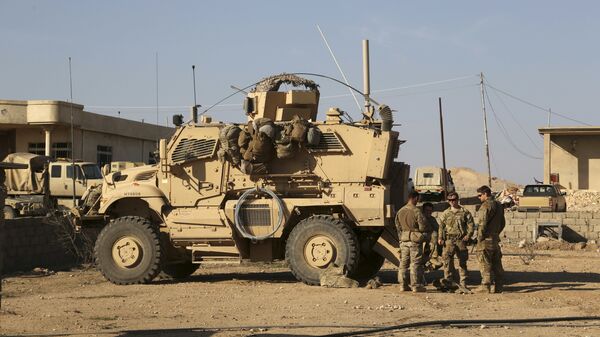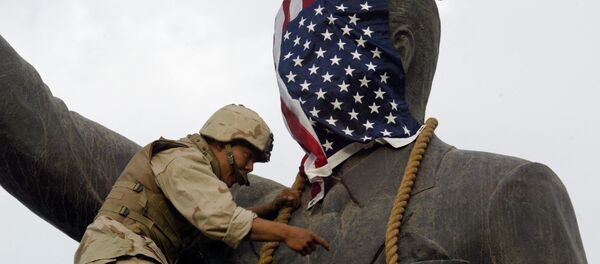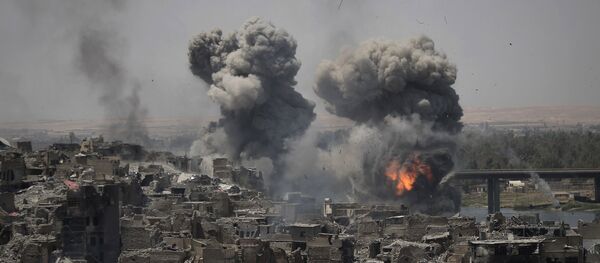Iraqi Vice-President Nouri al-Maliki has hit back at US attempts to claim the credit for the recent liberation of Mosul, emphasizing the leading role that the Iraqi army and people's militia played in the operation to free the city of Daesh terrorists.
"They [the United States] say – and I regret this and reject this – that the victory is their achievement because they led this war, but really this is a victory of the Iraqi army. Yes, they supported us with their aviation, but the main credit belongs to the Iraqi soldiers, the people's militia, Iraq's air force," Maliki told RIA Novosti.
"The US doesn't have the right to say that people's militia, which is comprised of the sons of Iraq, of whom 20,000 have been killed and wounded, are terrorists. If it weren't for the people's militia, there wouldn't be any Sunnis or Shiites left."
"Iraqi society is against foreign bases on our territory… I told the Americans, 'It's not in your interests to return to Iraq in order to establish military bases again,'" al-Maliki said.
Nikolai Sukhov, researcher at the Russian Academy of Sciences' Institute of Eastern Studies and Vice-President of the International Middle Eastern Studies Club, told RIA Novosti that al-Maliki's statement is a reflection of an anti-American mood in Iraqi society.
"Such statements are a reflection of prevailing anti-American sentiments in the country, which have remained since the American act of aggression which overthrew Saddam Hussein and plunged the country into chaos."
"Different groups in society may relate to the Saddam regime differently, but many see that over the past decade the country has become fragmented and destroyed. Many people have suffered great hardships, lost loved ones. Anti-American sentiments exist both among Shiites and Sunnis. Being the Vice-President of a country where the majority of people hold anti-American sentiments, he can't say anything else," Sukhov said.
Al-Maliki said that Iraqi forces are still fighting some remaining terrorists and the huge task of rebuilding the city is just beginning.
"The armed forces tried not to destroy the city more than was necessary in order to complete the operation, everyone knew the battle could drag on, eventually it lasted nine months. We could have surrounded the city, but the problem was that its inhabitants would have starved. Frankly, the military losses are huge — about 20,000 dead and wounded in the armed forces and police. The victory is not conclusive; there are still some small pockets in the city where terrorists are hiding and there are sleeper cells in Diyala too," the Iraqi Vice-President said.




